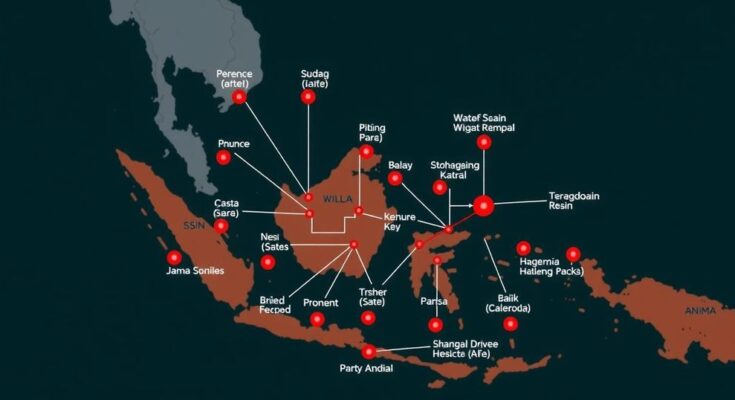A recent report asserts that the Dutch government systematically tolerated extreme violence committed by its military during the Indonesian independence war, contradicting the longstanding position that such actions were isolated. The study indicates that the violence was not only widespread but was often employed with the knowledge and complicity of Dutch leaders at all levels. It highlights the colonial mindset that fueled the harsh military response and evaluates the culture of impunity that allowed such acts to persist without accountability.
A report reveals that the Dutch government and military leaders knowingly tolerated systemic acts of brutality by their soldiers during the Indonesian independence war. Commissioned by institutions such as the Royal Institute for Language, Land, and Ethnology, the study challenges previous assertions by the Dutch State that emphasized isolated incidents rather than structural violence. The researchers assert that widespread extreme violence was not only prevalent but was also employed intentionally, with complicity from various levels of government, including military and judicial leaders.
The study outlines that the Dutch aimed to defeat the Indonesian independence movement by any means necessary, reflecting a colonial mindset rooted in perceived Dutch superiority and economic interests. Indigenous aspirations for independence were largely underestimated, and the violent tactics utilized by Dutch forces ranged from extrajudicial executions to mass detentions. Although both sides engaged in violence, the Dutch military’s systematic abuse is highlighted, with a culture of impunity further exacerbating the situation.
The analysis reveals that while some violent actions taken by Dutch soldiers were deemed “functional” and largely ignored by military courts, other acts were punished. This lack of accountability fostered a broader culture where extreme violence was tolerated during the conflict, resulting in long-lasting ramifications for both Dutch-Indonesia relations and the historical narrative surrounding this period. The report concludes that the consequences of the war were compounded by grave misjudgments and left the Netherlands isolated internationally.
Reactions to the report have been mixed, with some parties, such as the Committee of Dutch Debts of Honor, arguing that it does not adequately acknowledge war crimes. Others, like the Veterans Platform, contend that the study unfairly depicts soldiers and fails to incorporate the full context of the conflict.
Ultimately, the report sheds light on a troubling chapter in Dutch colonial history, emphasizing the need for an honest recounting of the past to understand contemporary implications.
This comprehensive evaluation calls for recognition of the historical complexities surrounding Indonesia’s struggle for independence and advocates for a balanced discourse that encompasses all facets of the conflict.
The Dutch-Indonesian conflict during the late 1940s arose following Indonesia’s declaration of independence from colonial rule on August 17, 1945. Following World War II, the Dutch aimed to reassert control over their former East Indies territory, leading to a violent and contentious struggle. The Dutch military employed controversial tactics to suppress the independence movement, motivated by economic, geopolitical, and colonial motivations. The prevailing colonial mentality among Dutch officials contributed to the dehumanization of the Indonesian populace and justified the extreme measures taken against them. Recent research has since scrutinized these actions, prompting renewed discussions on the legacy of colonialism and accountability in historical narratives.
The report underscores the deliberate tolerance of systemic violence by the Dutch government during the Indonesian independence struggle, challenging previous narratives that minimized the extent of these actions. By revealing the widespread use of brutality, the study advocates for a reevaluation of historical perspectives that have either overlooked or justified colonial-era violence. The contemporary implications of these findings call for a reassessment of historical accountability and a more nuanced approach to the narrative surrounding Dutch colonialism in Indonesia.
Original Source: nltimes.nl




